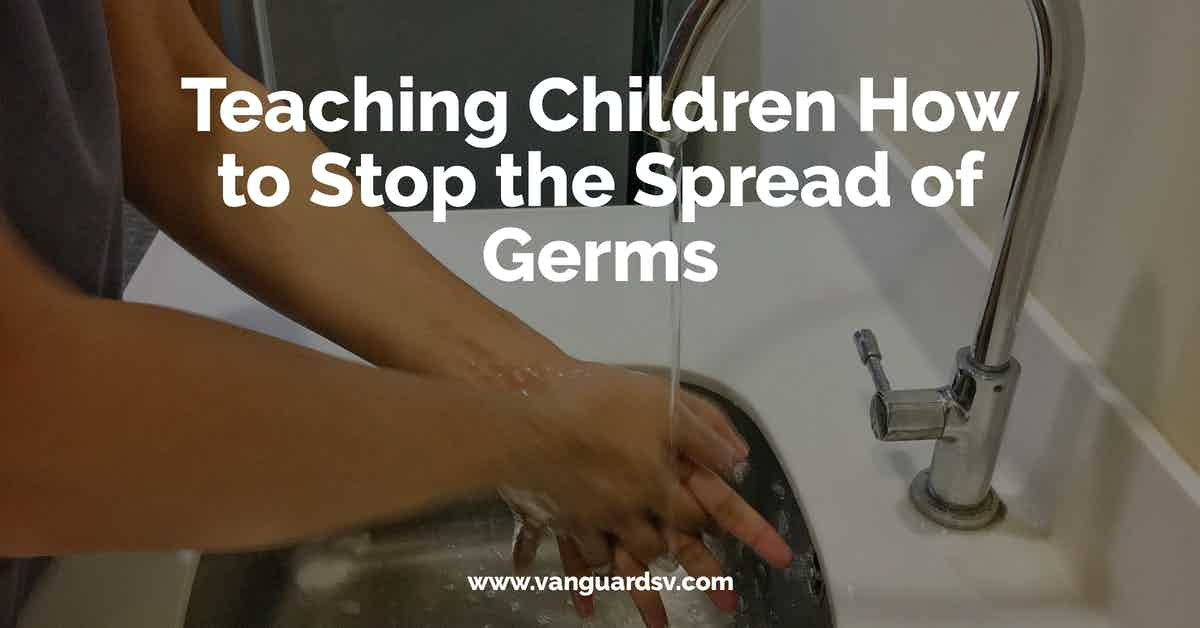One vital lesson the COVID-19 pandemic has taught us is that education is critical to preventing the spread of germs, especially among young school-aged children--currently a high-risk demographic for both the COVID Delta Variant and a potential uptick in influenza cases.

Teaching Kids About Germ Prevention Through Hand Hygiene and Awareness
The pandemic taught us a lot about hygiene and safety in public facilities.
As concerns regarding the Delta Variant begin to mount just before the new school year, combined with fear surrounding a potential spike in influenza cases as certain COVID-related restrictions are relaxed, health officials feel parents, teachers, and other student mentors need to emphasize, not only good handwashing habits, but also surface avoidance and hand awareness habits in public places.
According to CleanLink;
If nothing else, the pandemic provided an upcoming generation of students the most concrete example of why handwashing and hygiene are important habits to keep.
But as William C. Miller, professor of epidemiology and senior associate dean for research at the College of Public Health at Ohio State University points out in a Washington Post feature, mentors still have plenty of room for improvement when it comes to explaining to children why exactly handwashing and avoiding virus-prone surfaces is essential.
Spreading Germs An Equally Important Lesson As Avoiding Them
In addition to teaching kids about the importance of paying attention to what they touch when they are in public places, according to the latest data, we may all need a bit of a refresher course in knowing that hand washing is important for preventing the spread of germs, and actually washing our hands.
According to data collected in a recent survey conducted by California-based water treatment equipment manufacturer, Puronics;
- 31% of male and 17% of female respondents said handwashing ranked as somewhat or not very important.
- Respondents stated they washed their hands approximately 9 times per day, however;
- Only 49% said they always used soap, and only;
- 28% said they always used hot water.
- 38% said they only washed their hands for about 15 seconds, 5 seconds less than the CDC's minimum recommended 20 seconds.
- While 'most' respondents stated they knew it was very important to wash their hands after using the restroom, 32% admitted they don't always do it.
- 62% said they felt it was important to wash their hands when returning home from a public place, but only 46% said they consistently do that.
Source:
Preventing the Spread of Germs in Classrooms and Other Public Facilities
Preventing the spread of germs in schools, classrooms, and other public facilities requires:
- A commitment by facility occupants to regular, high-quality handwashing should be completed at key times during the day, especially after using the restroom, before eating, after preparing food, and returning from home at the end of the day. One critical component commonly overlooked is ensuring that hands are completely dry using a clean paper or cloth towel.
- The focused attention of facility occupants on where they place their hands when they are out in public - surfaces in public facilities function as reservoirs for germs and bacteria. When someone touches those contaminated surfaces, infection becomes a short route from your hand to your face. Paying attention to what, when, and where you touch will help to reduce the transmission of infection from surfaces to ourselves and others, and;
- Regular, high-performance cleaning and disinfection services - given the reality that people are unlikely to jumpstart a compliant hand hygiene habit, short of another full-scale pandemic, surface cleanliness and hygiene must serve as a bulwark against the transmission of infection. Cleaning surfaces in public facilities every day with a commercial-grade detergent and targeting high contact surfaces with an EPA-registered (List-N) disinfectant will break the chain of infection and help prevent the spread of illness, including all known variants of COVID and influenza.
Takeaway
Once COVID and all its variants finally pass, we will still be left with infectious diseases that easily spread through contact between unwashed hands and contaminated surfaces.
Hand washing and awareness, though critical, are likely unenforceable on any significant level.
That leaves facility cleaning and disinfection services, which can easily be scaled and modified to meet the most stringent health and safety requirements, to pick up the slack.
Outsourcing is a proven method for onboarding increasingly in-demand sustainable cleaning for health services, tools, and expertise for a fraction of the cost of maintaining a similar service in-house.
If you would like more information regarding the effectiveness of high-performance infection prevention and control measures, or if you would like to schedule a free, no-obligation onsite assessment of your facility's custodial needs, contact us today for a free quote!
In Bakersfield, CA, call (661) 437-3253
In Fresno, CA, call (559) 206-1059
In Valencia CA, or Santa Clarita CA, call (661) 437-3253
In Palmdale, CA or Lancaster, CA, call (661) 371-4756

